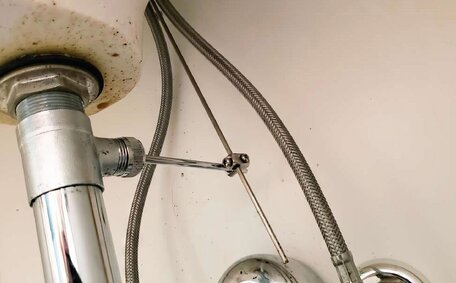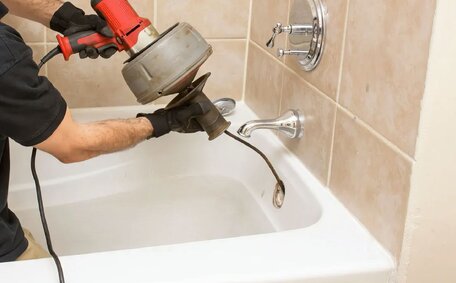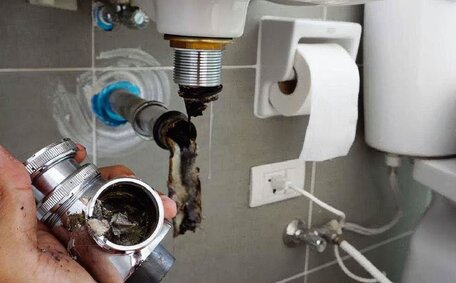Introduction: Understanding Hot Water System Efficiency
For Sans Souci residents aiming to reduce energy costs and carbon emissions, a heat pump-equipped hot water system is critical. Outdated or malfunctioning systems can waste energy and increase costs, especially due to unchecked pilot lights that overheat water.
At Sans Souci Plumbing, we specialise in maintaining and optimising your water heater, as well as performing system repairs and upgrades - efficiency is one of our top priorities.
Storage tanks that lose heat may lead to running out of hot water and cause the heating element to activate frequently. Upgrading fittings, adjusting controls, and maintaining your solar hot water systems can significantly boost efficiency, ensuring water usage in your home is optimised.
Temperatures exceeding 65°C, often due to a malfunctioning pilot flame, compromise efficiency and lead to further energy losses.
Optimizing Temperature Settings
Ensuring your hot water system is not set too high using the gas control is crucial for maintaining efficiency. To prevent wasting energy, ensure the pilot light is lit when there’s no hot water; remember, settings above 65°C do not offer additional benefits. Turning down your thermostat by 10-15°C can slash your energy bill by up to 15%, an effective energy saving tactic.
Begin by identifying the control knob on your water heater. Adjust it from its highest setting to a moderate 50-60°C for balanced savings, comfort, and safety.
A licensed plumber can help you install low-flow showerheads and tap aerators, offsetting any noticeable changes in water temperature. A plumber can offer professional advice on adjusting controls to efficiently manage the water your household requires and utilises.
Adjusting the Thermostat
To safely adjust your hot water system’s thermostat:
- Locate the temperature control dial on the front of your unit.
- Set the gas supply to "off". Consult your appliance’s user manual if you are unsure.
- Use a screwdriver to remove the control dial’s access panel.
- Carefully turn the dial to ensure the water temperature is not set too hot or too low, aiming for your desired setting between 50-60°C.
- Replace the control panel and turn gas/power back on.
- Allow several hours for the new temperature to take effect throughout your pipes and taps, during which time you should check to see if the water temperature at various outlets is up to par.
- Consult the information below on how to check taps to ascertain if the water quality is satisfactory, making slight adjustments if needed.
Proper calibration of temperature controls can prevent both heat shortages and energy wastage from overheating. Lower thermostat settings typically save 10-15% on your energy bills and ensure there’s enough hot water for your household’s comfort and requirements. Our Sans Souci plumbing professionals can tailor your water system settings to ensure optimal hot water temperatures for your needs.
Setting the Right Water Temperature
To maximise the capacity of your solar hot water system, the optimal temperature setting is around 50-60°C. Heating water to about 60°C is key to preventing Legionella bacteria growth, potentially causing Legionnaires’ disease, and it also minimises energy waste.
Turning down an electric storage unit from 75°C to 60°C can reduce running costs by up to 22%.
When adjusting your thermostat, start by lowering the temperature incrementally to 60°C. Allow several hours for the new setting to stabilise, carefully testing water from multiple taps. Use the reset button to recalibrate your system if necessary, making minor tweaks to balance efficiency and comfort.
Our Sans Souci plumbers can determine the optimal temperature for your hot water system based on your household’s requirements. We can also install special tempering valves to deliver a constant temperature at your taps if required.
Insulation to Retain Heat
Proper insulation around gas and electric hot water system tanks and pipes aids in maintaining heat and enhancing efficiency. Insulation reduces standby heat losses from the storage tank surface and water supply pipes, cutting energy wastage.
For tank insulation, materials such as fibreglass batts, pipe lagging, and foam wraps are effective. Ensure all sides of the tank are covered snugly with a minimum 75mm thickness.
Insulation maintains optimal temperatures and reduces energy consumption by slowing heat loss, even during periods of no water supply. This improves the efficiency of your supply hot water and lowers running costs. Quality insulation paired with appropriate temperature settings can save over 22% in water heating bills.
A local licensed plumber in Sans Souci can offer tailored advice on insulating your system for maximum efficiency. We also offer pipe lagging, tank wraps and full insulation services to help retain heat.
Installing Pipe Insulation
Pipe insulation is vital to prevent heat loss in storage water heater systems. Common insulation materials suitable for hot and cold pipes include foam tubing, rubber foam sleeves, and fibreglass wraps. Properly installed insulation creates an effective moisture barrier.
To install pipe insulation:
- Measure the length and diameter of each pipe section requiring insulation.
- Cut lengths of tubing or slit foam sleeves to size using a sharp utility knife, allowing an extra 1-2 inches for overlap.
- Seal insulation seam overlaps thoroughly with adhesive tape to prevent condensation buildup inside.
- Secure insulation snugly along the full length of each pipe section, sealing ends with tape.
Insulating pipes is critical for storage water heaters, helping to significantly conserve heat. Pipe lagging can reduce standby energy losses by 50-70%, delivering substantial savings on energy bills over time. Our licensed Sans Souci plumbers provide expert insulation services.
Wrapping the Water Heater
Insulating your hot water tank is essential for achieving maximum efficiency suited to your needs. Tank insulation dramatically slows standby heat loss, enabling heat to be retained longer. Suitable insulation materials include fibreglass batts, wraps and blankets specifically designed for hot water units.
To insulate your tank, adhere to these steps:
- During a power outage, ensure the power is off to allow an electric tank to cool completely or turn off the gas supply to a gas unit.
- Clean tank exterior thoroughly removing dust and grime.
- Measure tank height and circumference to calculate required insulation.
- Cut insulation blankets or batts to size based on tank dimensions.
- Wrap insulation snugly around all sides of the tank, securing seams with tape.
Quality tank insulation paired with optimised temperature settings can reduce standby heat losses by 50-70%. This prevents energy waste from constant reheating, dramatically lowering electricity or gas usage.
For full optimisation of your types hot water system efficiency, the licenced team at Sans Souci Plumbing offer insulation supply and professional installation services.
Heat Traps and Anti-Convection Valves
Heat traps and anti-convection valves do more than merely reducing heat loss from hot water pipes. These devices hinder convection currents and conduction, preventing heat from escaping the water in the pipes.
When hot water sits in pipes, it naturally wants to rise to the top while cooler water sinks. This creates convection currents that allow heat flow through from the water into the pipe walls, wasting energy. Heat traps stop this by preventing hot water at the top of pipes from circulating.
Anti-convection valves inhibit heat transfer along the length of pipes to limit energy waste. They typically contain physical barriers, labyrinth passages or one-way flapper valves to block convection flows.
Water systems can, by installing these devices, conserve energy more effectively in both hot and cold lines near storage tanks. This process ensures heated water stays warmer for longer without needing reheating, boosting efficiency. Our team of licenced Sans Souci plumbers can supply and fit appropriate heat traps and anti-convection valves to optimise your system.
Flushing Out Sediment Buildup
Over time sediment like rust, mineral deposits, and scale can accumulate inside your heater, impacting its efficiency. This buildup insulates the water from the heating source, forcing your unit to work harder to heat water. Flushing out sediments improves heat transfer efficiency.
Annually draining your water heater is recommended to clear sediment that hinders efficiency. Make sure to carefully turn off the circuit breaker or gas and attach a hose to the tank drain valve, routing it to a safe drainage area. Open the relief valve and drain tap together until water runs clear.
Capture any initial outflow of water to check if it’s coming out hot or contains loose sediment.
Descaling solutions can also help dissolve mineral deposits and corrosion inside tanks and pipes. Flushing with clean return water afterwards removes debris, keeping units operating at peak efficiency. Our team of licenced Sans Souci plumbers offer full hot water system flush outs and descaling.
Prevent future sedimentation by installing inlet water filters.
Low-Flow Fixtures to Reduce Water Usage
Efficient tapware and shower heads with low flow rates can significantly decrease hot water consumption. Low-flow fixtures provide adequate water flow of 6-9 litres per minute, without reducing water pressure.
Reducing water volume output directly lowers energy required to heat your water, aiming to reduce the amount of usage and wastage. Low-flow shower heads cut water usage by up to 66%, also slashing heating costs. Efficient taps, toilets and appliances further minimise wastage.
Upgrading to low-flow fixtures is an easy way to optimise hot water system efficiency. Our licenced Sans Souci plumbers can advise on suitable aerators, regulators and water-saving appliances best suited for your household.
Routine Maintenance and Checks
Consistent maintenance significantly improves your hot water system’s efficiency and longevity. We recommend, and your plumber can assist with developing, a monthly checklist covering:
- Inspecting control valve and connections for leaks
- Checking pipe and tank insulation for damage
- Confirming stable water pressure and temperature
- Flushing sediments from the tank annually
- Testing safety switch features like relief valves
Preventative maintenance lets you identify issues early before they escalate. For example, worn valves and failing heat traps allow energy waste while insulation gaps increase heat losses. Keeping up routine servicing optimises efficiency.
For detailed maintenance including checking your heat exchanger, our team of licenced Sans Souci plumbers offer affordable service plans. We can develop a custom schedule optimised for your household’s usage.
When to Call a Professional
Calling in plumber professionals is advised when you encounter complex issues with your water system that need expert attention.
Expert assistance is often essential for the urgent restoration of any hot water system, particularly gas models. Attempting dangerous repairs without proper qualifications risks injury or property damage. Only licenced technicians should service gas valves, burners and flues.
Likewise, some symptoms indicate serious underlying problems needing a pro’s assessment, like:
- No hot water heating up despite trying basic fixes
- Knocking or rumbling sounds
- Visible leaks, cracks or external damage
- Faulty electrical controls
- Overheating tanks
Sans Souci Plumbing’s licenced team have 30+ years combined experience optimising hot water systems, so For any issues with your hot water system, don’t hesitate to make a hot water call to your local experts. For efficency troubleshooting or upgrades, call us on 1300 349 338.
Safe Handling of Gas Systems
Natural gas hot water systems require complex components such as burners, flues, and combustion chambers for heating water effectively. Improperly handling these elements, especially in continuous flow systems, risks serious accidents or damage. We strongly advise householders not to attempt any DIY adjustments on gas systems.
Seeking professional assistance for servicing gas units is crucial. Dangerous levels of gas can accumulate along the gas line from minor leaks. Attempting repairs without proper training and equipment may result in injury or property hazards.
Its time for engaging qualified plumbers to optimise your gas hot water system which also makes financial sense. Well-maintained units are the most efficient, helping you save money, around $180 yearly on bills compared to neglected ones. Our licensed technicians conduct thorough servicing to ensure the safe and efficient operation of your system.
For professional assistance optimising your gas hot water system’s efficiency and safety, contact our team at Sans Souci Plumbing on 1300 349 338.






